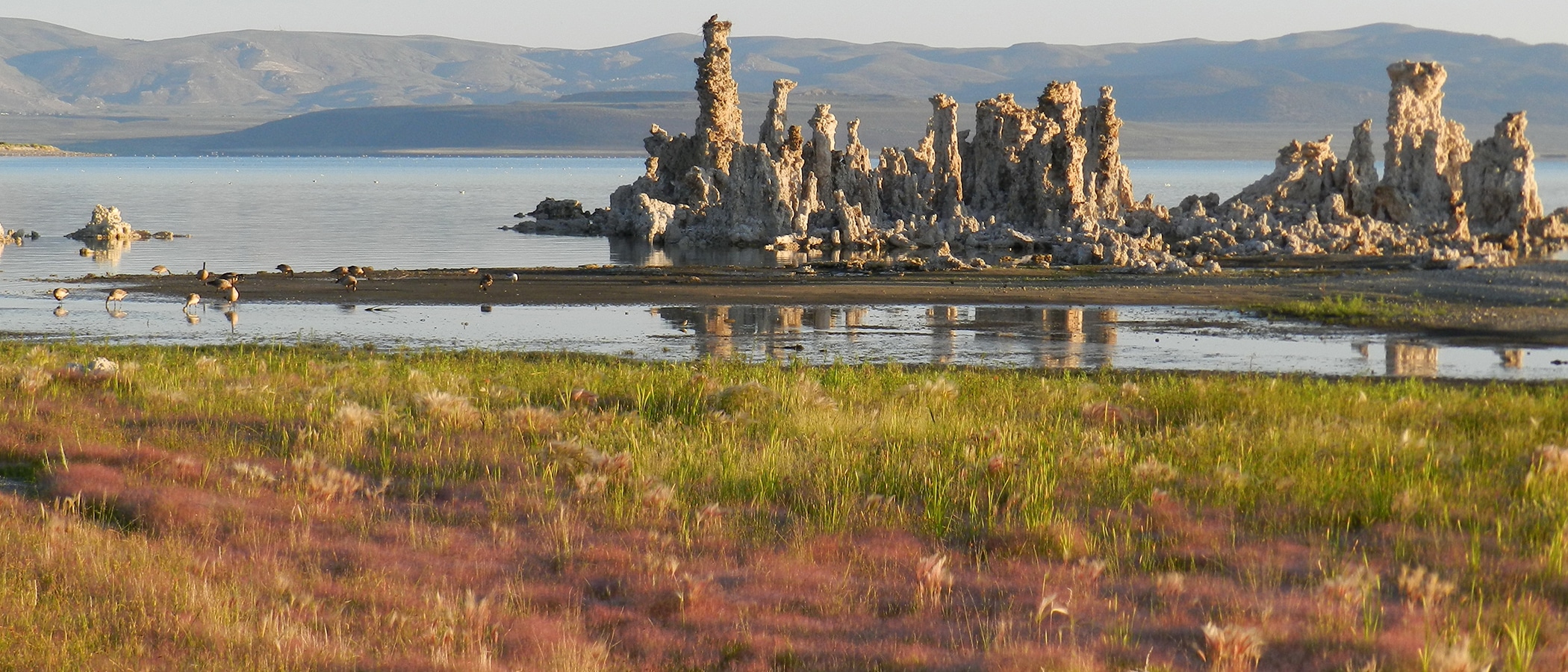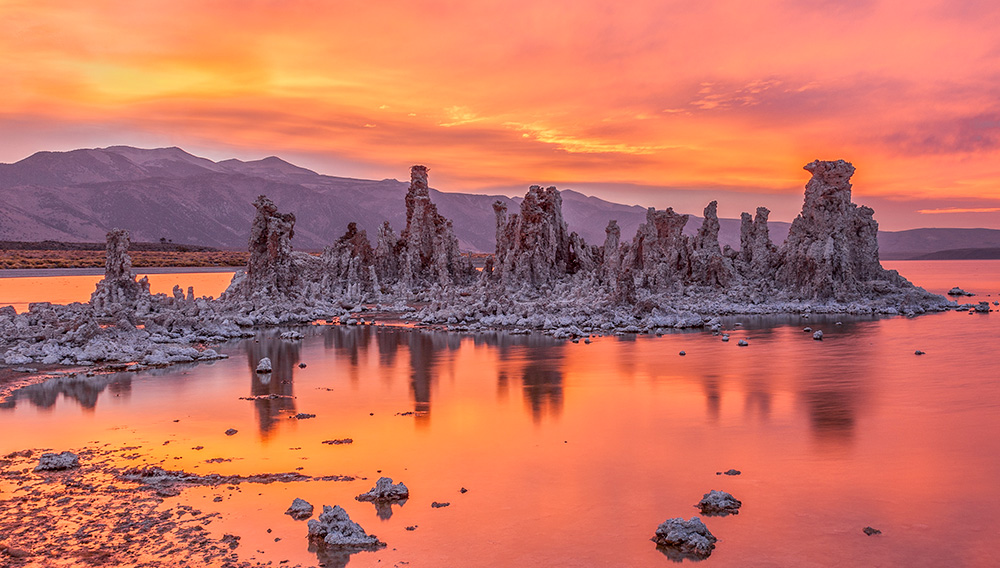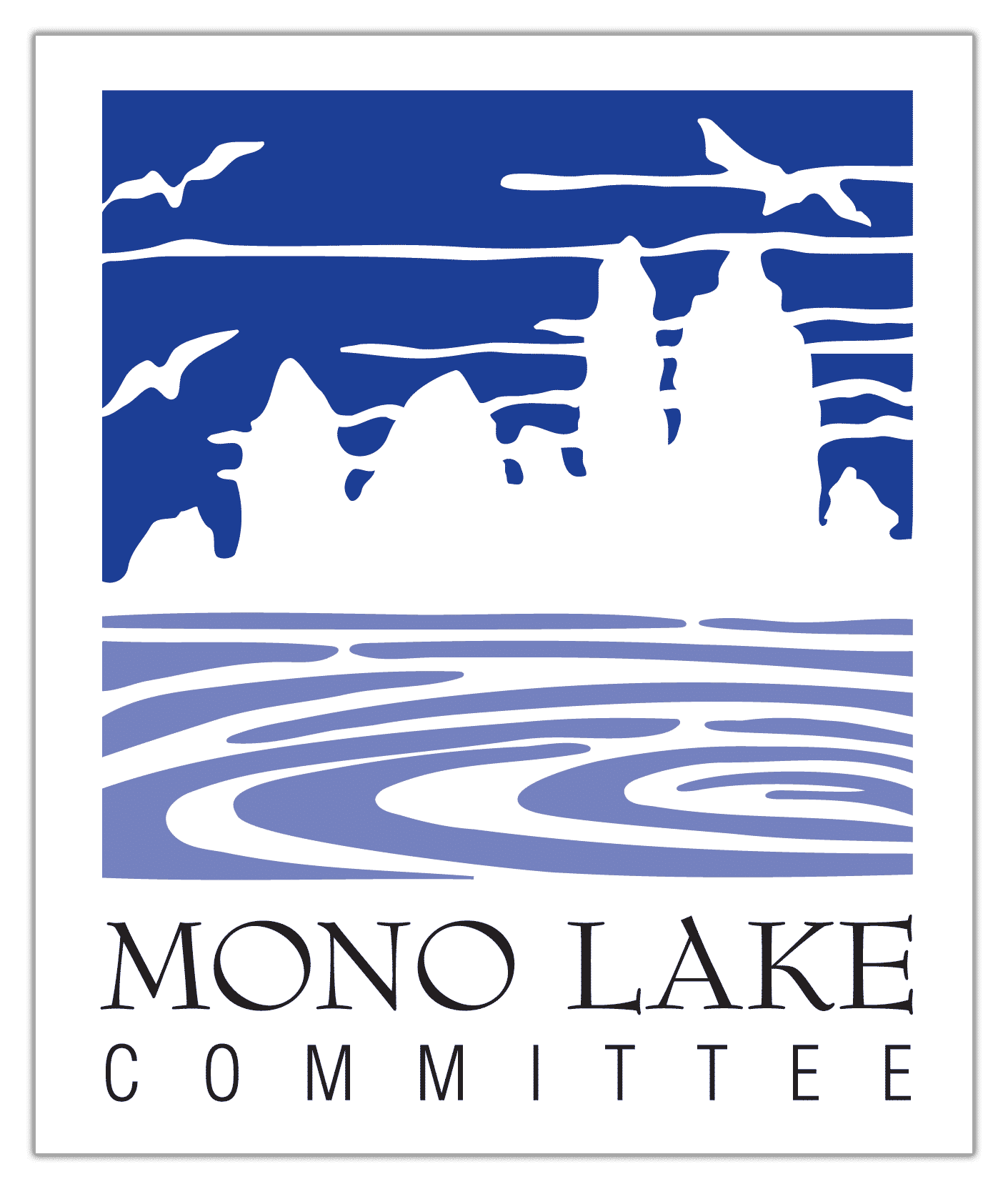
This essay, written by Caelen McQuilkin, appears in the 2020 Mono Lake Calendar.
Born and raised in Lee Vining, I have lived and breathed Mono Lake, and the Eastern Sierra, from before I learned to walk. I remember family backpacking trips to Cascade Lake, where I would sit on the cooling granite and watch the sun sink below the Sierra crest, staining the swooping granite pinnacles with rosy pink. I remember floating in Mono Lake on warm summer days, gazing up at the soft blue sky and letting the sun soak into me.

As the years slipped by and I began adding more peaks to my summit list and learning the names of wildflowers, I became more and more curious about the world around me. I believed, and still believe, that the basin of knowledge available in my backyard is infinite and ever-changing, that there is always more to discover, always another section of the map to explore, always another lake to swim in. This constant sense of wonder has crafted the lens through which I see the world.
At seventeen, I still fall in love with Mono Lake every day. Driving home from school, I often pull over to gaze at the lake’s ever-changing surface and the sweeping sky above it. What I understand about myself and the world around me is an idea that I have pieced together from these views over seventeen years of life, seventeen years of being awed by Mono Lake, glassy and water-colored with dusty pink, or deep and rippling, bright against the snow-covered banks, or flat and silvery, reflecting a sky matted with clouds.
Today, I’m pondering these memories and feelings as I sit here and type on a grassy slope beside the lake’s north shore. I’ve been hiking in this area for all of my life, but the way this place makes me feel has never changed. I remember being seven years old, hiking to this same spot and feeling so incredibly small, just one dot beside the enormous and ancient salt lake resting within a huge basin ringed by towering snow-capped peaks whose names I had only recently begun to learn. Today, the only noise for miles is the wind’s whisper through the grass and the gentle lap of the lake upon the shore. Beside the water, silver-white and barely rippling, and beneath the sky, which stretches in a vast expanse over wide, snow-splotched plains of yellow grass growing out of the once-submerged mud, a sense of clear and all-encompassing freedom drapes itself over me.
I’d feel nostalgic if it weren’t for the fact that Mono Lake, too, is a place of constant transition, something that has changed alongside me over all these years. On the days when words don’t flow from my heart to my pen like I want them to, or days when I feel as if I am losing sight of who I am, I go back to the mountains or to the lake for my answer.
This is because looking to Mono Lake has never failed to assure me of why, in this crazily complicated world where answers never seem clear, caring matters more than anything else. The story of how Mono Lake was saved from the excessive water diversions that almost destroyed it exemplifies how passion and dedication have the potential to change the world. It shows that using hope and love is more powerful than resorting to hatred, or simply giving in. Looking at the rising lake of today makes this idea so clear it is almost palpable—doing what we believe to be right, even if it feels hopeless or futile in the moment, always means something in the end. Places like Mono Lake matter because they allow us to identify that part of ourselves that gives us the power to care—care with a deep capacity, care in a way that transforms us into more empathetic people. This capacity to care, I believe, is what makes us more than just human, but the genuinely compassionate versions of ourselves.
In today’s world, a world facing vast challenges including the descent into climate disaster, we must use passion and dedication similar to that which launched the effort to save Mono Lake over forty years ago. In the same way that the Mono Lake Committee’s founders fought to protect a lake whose value they believed in even when it seemed that nobody else did, our ability to care has the potential to change the course of our whole nation and world. When things feel disastrous or hopeless or just downright confusing, I believe that Mono Lake’s lessons are some of the most straightforward cures we have: the ability to remain hopeful despite the circumstances, to remain grounded through deep passion, and to persevere despite lack of clear answers or opposition, have the power to initiate movement towards tangible change.
Mono Lake has inspired my passion and hope about the world and its people, and I strive to spend my life sharing these sentiments with others. As I approach the end of my time living in the Mono Basin, I have begun to hold these lessons even more closely to my heart. I am certain that the compassion I have learned living at Mono Lake will stay by my side always, in the same way that the Sierra poetry my parents read aloud to me as a child still informs my view of the world. There’s a poem by Gary Snyder which reads “range after range of mountains, year after year after year, I am still in love.” In the same way that ranges of Sierra mountains unfolding out into the distance will always tug at something deep inside me, I am certain that the way Mono Lake’s glassy reflected sunsets compel me to look into myself more deeply, will always be central to who I am. I hope that, for the rest of my life, this connection to the lake and the landscape around it will help me share my understanding of the world with others, and create the type of meaningful change that I have grown up admiring and hoping to lead one day.

Caelen McQuilkin, a 2019 graduate of Lee Vining High School, attends Amherst College in Massachusetts, where she is excited to focus on writing, debate, and action to raise awareness about and solve issues relating to climate change.
She has lived in the Mono Basin for all of her life, growing up with a close connection to Mono Lake and the Sierra. Adventures like night swimming with her friends have made her realize the true value of wild places, something she continues to share with others in her life outside of the Mono Basin.

[…] Read: The Mono-logue » Blog Archive » Ringing in 2020: The capacity to care […]